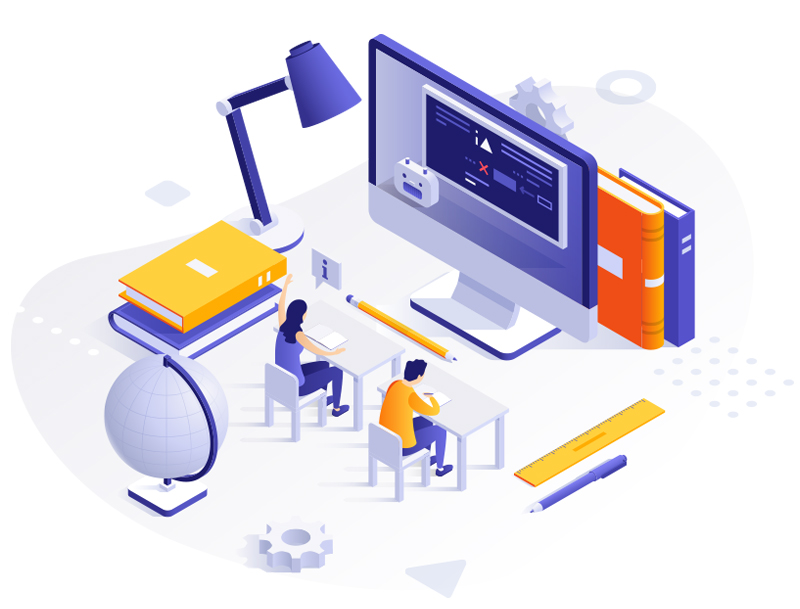As an engineering professional, having access to the entire suite of ASME’s self-study courses provides a comprehensive understanding of ASME’s main Codes and Standards along with an introduction to multiple engineering topics.
This official ASME Self Study All Access Learning Path is comprised of 33, self-study eLearning courses accessible via ASME’s Learning Hub. The courses provide an introduction to the following ASME Code and Standards and training within multiple engineering topics. It is designed to equip learners with the necessary engineering knowledge and skills to work within a variety of industries and use the relevant ASME Codes and Standards that apply to their respective fields.
Design for Additive Manufacturing with Metals: Learn key foundational knowledge to design for Additive Manufacturing (AM) with metals.
Additive Manufacturing Manufacturability: Laser Powder Bed Fusion: Prepare for part manufacturability with Laser Powder Bed fusion (L-PBF).
Additive Manufacturing Material Properties: Understand materials properties for L-PBF parts including variability in material properties and how to account for this variability.
Basic Gas Turbine Engine Technology Online Self-Study Course: Review the fundamental nature of gas turbine engines and the processes that affect their performance.
Failure Prevention, Fitness-for-Service, Repair and Life Extension of Piping, Vessels and Tanks: Learn methods and criteria of ASME B31, ASME VIII, API 579-1/ASME FFS-1, ASME PCC-2, NBIC parts 2 and 3, to make run-or-repair decisions on pressure equipment, piping and pipelines.
ASME BPV Code, Section XI: Inservice Inspection of Nuclear Power Plant Components: Understand ASME Section XI rules for in-service inspection, maintenance, testing, and the regulatory requirements of nuclear power plant components.
Nuclear Piping Systems ASME BPV Code, Section III and B31.1: Design, Integrity-Operability Assessment, and Repairs: Apply ASME Section III Division 1, Subsections NB/NC/ND to the design, analysis, and qualification of nuclear power plant piping systems in this On Demand course.
Introduction to ASME BPV Code, Section VIII, Division 1 (On Demand): Understand and apply ASME’s BPV Code, Section VIII, Division 1 to pressure vessel design and construction in this On Demand course.
Inspection, Repair, and Alterations of In-Service Pressure Equipment (On Demand): Apply various requirements to the inspection, repair and alteration of in-service pressure vessels and equipment in this On-Demand course.
ASME BPV Code, Section VIII, Division 2: Design & Fabrication of Pressure Vessels (On Demand): Understand and use the alternative rules for the design and fabrication of pressure vessels per Section VIII, Division 2 in this On Demand Course.
ASME Y14.5-2018 – GD&T Fundamentals (On Demand): Read and create engineering drawings and interpret design intent per the latest version of ASME Y14.5 - Geometric Dimensioning and Tolerancing (GD&T) in this On Demand course.
Drawing Interpretation (GD&T): Understand basic mechanical two-dimensional engineering drawings, drawing elements, part and section views, dimensions, tolerances, finish and welding symbols.
Fundamentals of Industrial Automation: Understand the techniques used in industrial automation with robotics and make suggestions for appropriate types of robotics hardware.
6 Axis Robot Arm: Learn key foundational knowledge, specifications, requirements, and operations of 6 Axis robot arms.
ASME B31.3 Process Piping Code (On Demand): Understand requirements of the ASME B31.3 Process Piping Code for the analysis, testing & inspection of process piping systems.
Assessing Suitability for Robotics in Manufacturing: A Case Study: Review, select, and plan the successful integration of a robot to automate a portion of an industrial process through a real-world case study.
Technical Writing for Engineers: Giving Readers What They Need: Learn techniques to cater your technical documents to a broad audience.
Ethics for Engineers: Doing the Right Thing When No One is Looking: Review the professional code of ethics that shapes engineering principles and identify your ethical concerns.
Introduction to the Selection of Pumps: Introduction to pumps – the way they work, different types, and some basic applications.
Introduction to the Selection of Valves: Overview of the considerations involved when choosing the appropriate valves for a system.
NQA-1 Part 1 – 18 QA Requirements: Overview of the ASME NQA-1 Nuclear Quality Assurance Standard and an in-depth look at Part I.
ASME Boiler & Pressure Vessel Certification Process: Learn about ASME Conformity Assessment, the process for ASME Certification, and the requirements for obtaining non-nuclear Code Stamps.
ASME B31.8 Gas Transmission and Distribution Piping Systems Overview: Overview of the scope of B31.8, including its history, the types of systems to which it applies, its organization, and the intended use of the Code.
Bioprocessing Equipment (BPE) Overview: Learn how this ASME BPE Standard has improved the manufacturing practices of the bioprocessing and pharmaceutical industries.
ASME B31.1 Power Piping Code Overview (Online Course): Introduction to the B31.1 Power Piping Code, and its relationship with ASME BPV Code, Section I.
ASME B31.3 Process Piping Code Overview (Online Course): Introduction to the B31.3 Process Piping Code, how piping systems function and what the Code requirements are for various types of installations.
ASME BPV Code, Section V: Nondestructive Examination Overview: Learn about the various applications of ASME BPV, Section V - Nondestructive Examination (NDE).
NQA-1 Practical Application: Review practical application of NQA-1 focusing on five of the principal requirements.
ASME PCC-2 Repair of Pressure Equipment & Piping Overview: Review the contents of ASME’s PCC-2 Standard and learn about the repair of pressure equipment and piping.
Y14.5-2018 Dimensioning and Tolerancing (GD&T) Overview: Overview of the contents and guidelines outlined in the ASME Y14.5 - 2018 Dimensioning and Tolerancing Standard.
Introduction to ASME Standards & Certification: Introduction to standards: why we have them, the process for creating them, and who is responsible for maintaining them.
ASME BPV Code, Section IX: Welding, Brazing, & Fusing Qualifications (On Demand) Learn about ASME's BPV Code Section IX welding, brazing & fusing qualifications.
API 579-1/ ASME FFS-1 Fitness for Service Evaluation (On Demand) Apply the requirements of API 579/ASME FFS-1 to make run, repair, and replacement decisions for pressure vessels, piping, and tanks in this online course.
For the full list of learning objectives and detailed descriptions for this learning path, please click on the links to the individual courses above.
Who should attend?
This learning path is intended for engineers who work in various industries and need to understand the requirements of ASME Codes and Standards that apply to their specific field and who are interested in learning about multiple engineering-related topics.
A Certificate of Completion will be issued to registrants who successfully complete each course in this Self-Study All Access Learning Path.
Course participants are expected to have:
- A basic understanding of engineering principles
- Access to computer equipment and a reliable internet connection
- Software to display PDF files (such as Adobe Reader)
Course Materials Included:
- Access to online course content via ASME's Learning Hub
- Interactive quizzes and assessments



